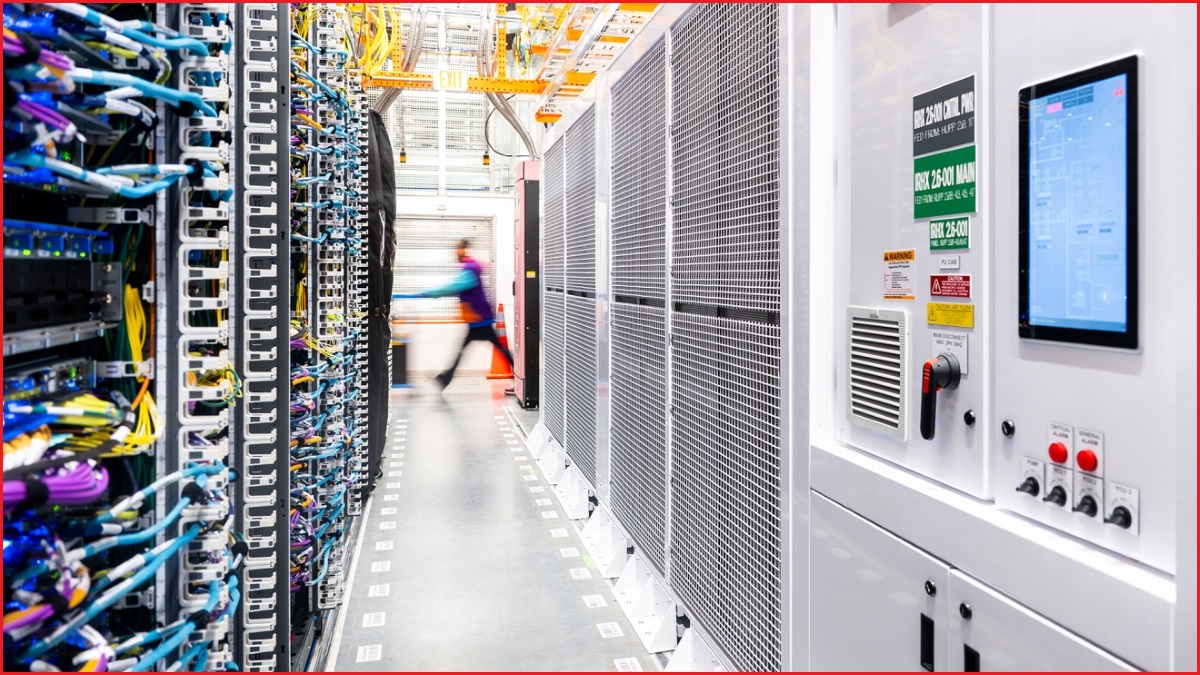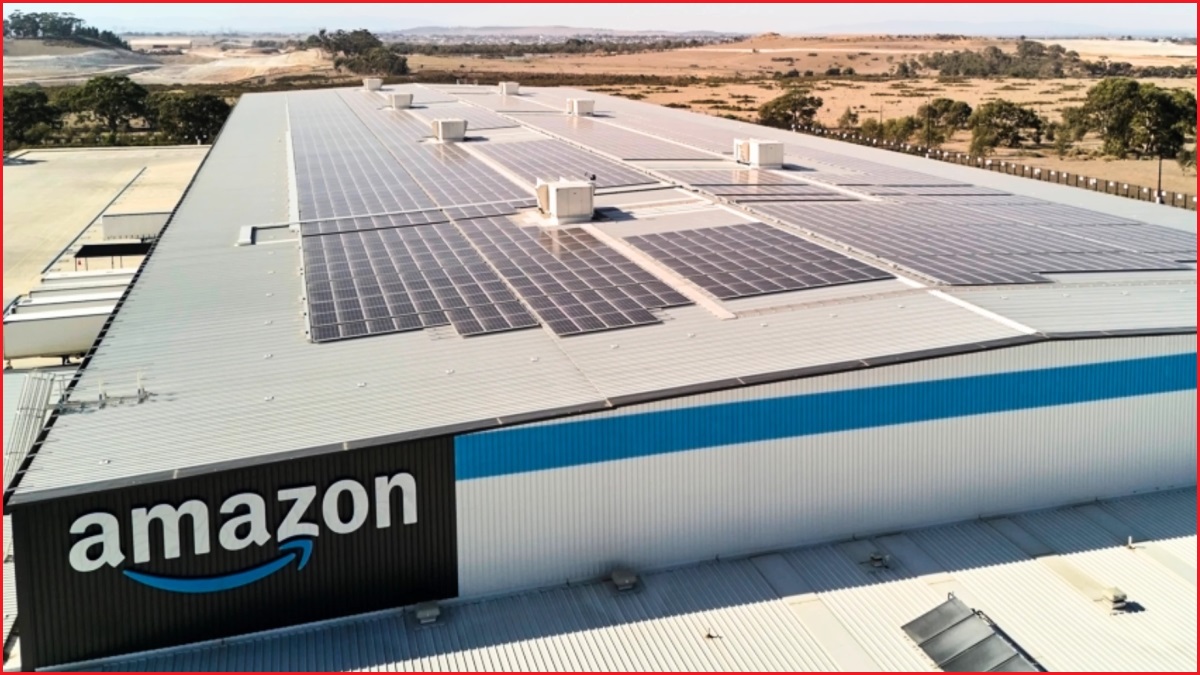American tech giant Amazon says it will increase its investments in Australian data centres to $20 billion between 2025 and 2029, in a move largely welcomed by the local industry despite some concerns over data sovereignty and support received by local cloud companies.
The plan, announced at the Seattle headquarters of Amazon Web Services (AWS) on Saturday by its CEO Matt Garman and Australian Prime Minister Anthony Albanese, marked an almost $7 billion increase on AWS’s previous promise to spend $13.2 billion on Australian cloud infrastructure between 2023 and 2027.
The latest plan included building new data centres in Sydney and Melbourne, while separate deals with Denmark-based European Energy would bring online two new solar electricity farms in Victoria and another in Queensland to help power growing energy demand from artificial intelligence and cloud processing, AWS said.
Albanese said the increased investment would “generate economic opportunity for Australians, including skilled jobs and infrastructure that can support complex AI and supercomputing applications”.
International firms specialising in cloud and generative AI technologies have increased their Australian infrastructure investments in recent years, with Microsoft pledging in 2023 to spend at least $5 billion to build nine new data centres in the country.
AWS already has a deep foothold in Australia’s cloud computing market and has invested more than $9 billion in local infrastructure since 2012.
The company’s services are used by the nation's largest banks and telecommunications providers, and AWS was also selected to hold 'Top Secret' Australian national security and defence data in 2024.
Mixed reactions from local cloud providers
While Albanese said the Australian government believed AWS’s increased investment would help local businesses take advantage of new technologies, there have been mixed responses to the announcement and some concerns raised over the sovereignty of Australian data and AI.
Data sovereignty — a nation’s right to control its own data, regardless of where it is stored — has become a growing concern for Australian businesses and consumers due to increasing amounts of personal and business information stored in the cloud and several high-profile data breaches in recent years.
Bass Salah, co-CEO of Australian cloud services provider ResetData, told Information Age that while the company acknowledged AWS’s significant investment in Australia, ResetData had “serious concerns about how this aligns with Australia's sovereign interests”.
“The question isn't whether foreign investment is welcome,” Salah said, “It's whether we're doing enough to ensure Australia maintains control over its digital future and competitive advantage in the AI era.
“Governments worldwide are deploying their own mega AI factories and investing heavily in homegrown AI capabilities, however, the Australian government has done comparatively little,” he said, adding that he believed international hyperscalers such as Amazon could not be defined as sovereign.

AWS says it will invest $20 billion in Australian data centres between 2025 and 2029. Image: AWS / Supplied
Australian data centre firm NextDC, a strategic partner of AWS, told Information Age the US company’s rising local investments underscored “the strategic importance of digital infrastructure for enabling sovereign, secure, and sustainable AI at scale”.
NextDC CEO and managing director, Craig Scroggie, said, “For Australia to lead in AI, every partner in the ecosystem should be considering the urgency for investing in the five ‘S’ pillars underpinning global competitiveness: speed, scale, security, sustainability, and sovereignty.
"Clearly, AWS subscribe to this strategic imperative."
Albanese said he welcomed American technology companies recognising "the extraordinary potential that investing in Australia represents”, and the jobs and AI capabilities their infrastructure could enable.
The rise in AWS’s local investments was “a powerful symbol of Australia and the United States co-operating to seize and shape a new era of prosperity”, he said.
Australia’s new Minister for Industry and Science, Tim Ayres, has urged Australia to “lean in” to AI and its potential benefits for productivity since taking over the role in May.
Local tech firms ‘integral’ to Australia’s prosperity
The Australian Computer Society (ACS), which represents almost 50,000 Australian tech workers and is the publisher of Information Age, said while it welcomed AWS’s increased investment in Australia and its possible economic benefits, local technology companies were also key to the country’s future.
ACS CEO Josh Griggs said commitments from AWS and Microsoft had showed Australia was “recognised as a strategic technology destination” for large companies, but local tech firms remained “integral to our digital infrastructure system”.
“For Australia, there’s an imperative we have a sovereign AI capability beyond the global hyperscalers, so we call for a balanced approach that combines global expertise with local capability which will deliver the best outcomes for Australian businesses and strengthen our technological sovereignty,” he said.
"We encourage government and industry to continue supporting Australian technology companies and ensuring they have opportunities to participate meaningfully in these large-scale infrastructure developments.
“Our local providers bring unique understanding of Australian business needs and regulatory requirements that complement global solutions.”
Information Age understands regulatory complexity has remained a concern for local data centre companies, with some having raised the issue with the government as a common barrier to entry in the Australian market.
Government considers sovereignty, data centre sustainability
Redefining sovereign infrastructure and ensuring data centre sustainability have become key priorities of the Australian government’s development of a national AI capability plan, Information Age understands.
The plan, set to be unveiled by the end of 2025, is expected to have sustainability as a core tenet of its data centre strategy, with Australia’s regional renewables growth and net zero goals seen as competitive advantages over other nations when it comes to power-hungry AI infrastructure.

Amazon says energy from renewable sources helps power its local data centres and fulfilment centres. Image: Amazon / Supplied
“Increasingly, as global companies look around the world for where they would invest, they look at the sustainability of that investment,” Albanese said on Saturday.
“And Australia, with our vast continent that we have, does have an advantage in that we're able to have the large solar and wind and other forms of renewable energy as well, and [AWS’s] investment will certainly make an enormous difference there.”
Amazon already has eight solar and wind projects across Australia which it uses to help power its local data centres and online store fulfilment centres, which also use other forms of energy.
The company said it remained the largest corporate buyer of renewable energy globally and had matched all of its electricity consumption with energy generated from renewable sources since 2023.










